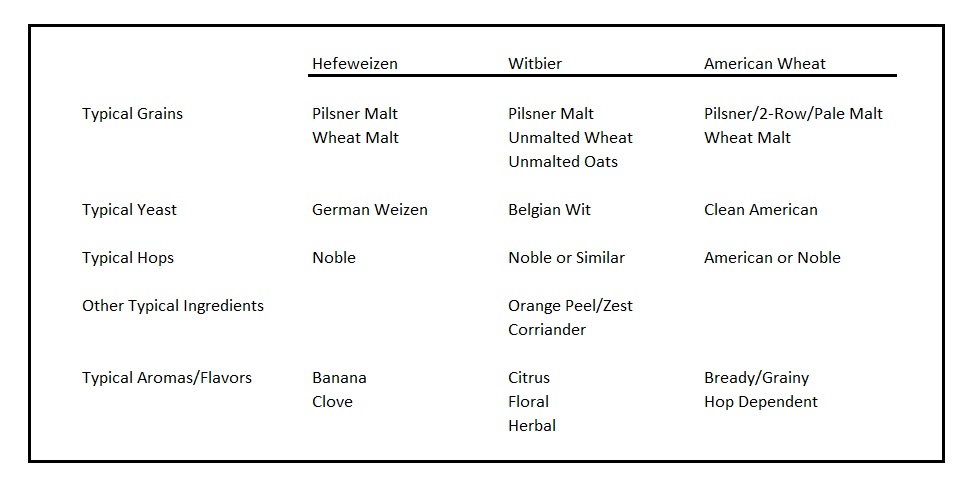polishdude20
Member
- Joined
- May 22, 2020
- Messages
- 15
- Reaction score
- 4
I'm new to brewing and I'm planning on brewing some wheat beer using the BIAB method. I've done some research online and have come up with a recipe that seems to be the general consensus on how to make a basic wheat beer and before I go and buy the ingredients, I was wondering if I could get some feedback?
So I'm looking to brew 5 gallons. From what I've seen, considering boil off and grain water absorption, most strike water recommendations would be around 7 gallons.
Add about 0.25 of a Campden tablet to water to remove chloramine.
The recipe is as follows:
5.5 lb of Wheat Malt
4 lb of Pilsner Malt
0.5lb of Flaked Wheat
0.5 lb of Rice Hulls
Mash at 152 F for 60 Mins
Then boil:
0.75 Oz of Hallertau at 60 min
1.5 Oz of Bitter Orange Peel 10 Min
0.5 Oz Coriander 5 Min
0.5 Whirfloc Tablet 5 min
As for Yeast:
WLP380 HEFEWEIZEN ALE IV
Then I'd siphon the wort into my glass carboy and give it a good shake for aeration.
Does this sound sensible? Are there quantities that I'm vastly under or overestimating?
So I'm looking to brew 5 gallons. From what I've seen, considering boil off and grain water absorption, most strike water recommendations would be around 7 gallons.
Add about 0.25 of a Campden tablet to water to remove chloramine.
The recipe is as follows:
5.5 lb of Wheat Malt
4 lb of Pilsner Malt
0.5lb of Flaked Wheat
0.5 lb of Rice Hulls
Mash at 152 F for 60 Mins
Then boil:
0.75 Oz of Hallertau at 60 min
1.5 Oz of Bitter Orange Peel 10 Min
0.5 Oz Coriander 5 Min
0.5 Whirfloc Tablet 5 min
As for Yeast:
WLP380 HEFEWEIZEN ALE IV
Then I'd siphon the wort into my glass carboy and give it a good shake for aeration.
Does this sound sensible? Are there quantities that I'm vastly under or overestimating?
















































![Craft A Brew - Safale BE-256 Yeast - Fermentis - Belgian Ale Dry Yeast - For Belgian & Strong Ales - Ingredients for Home Brewing - Beer Making Supplies - [3 Pack]](https://m.media-amazon.com/images/I/51bcKEwQmWL._SL500_.jpg)









